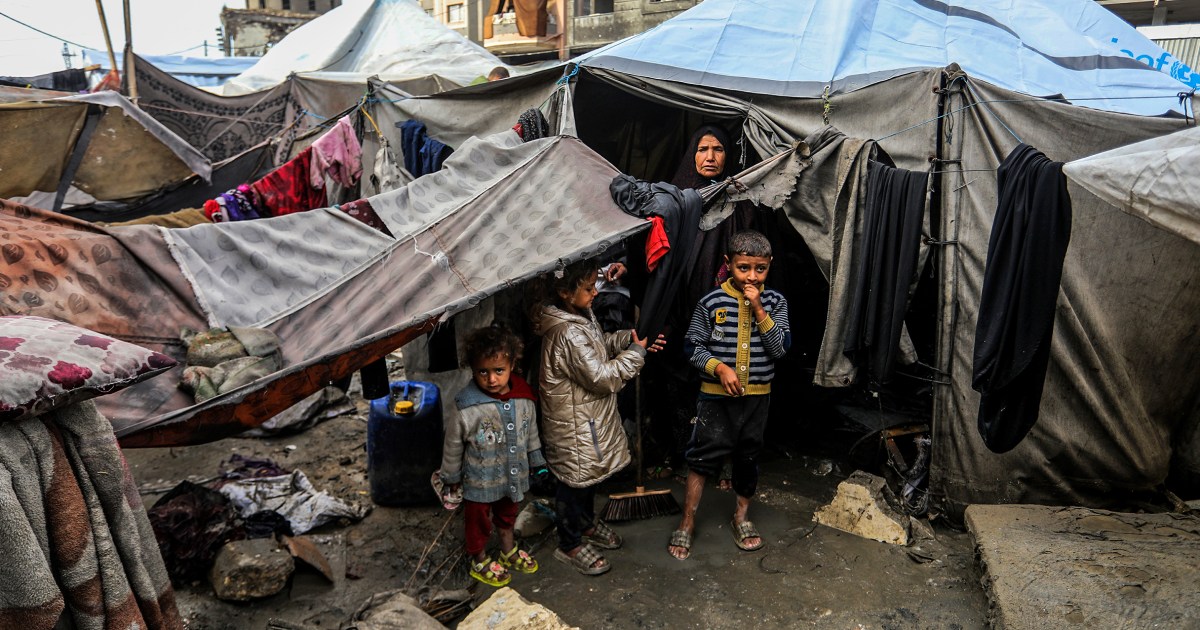To hear President Donald Trump tell it, this was “one of the biggest approvals in the history of the United Nations,” a “moment of true historic proportion” that would ” lead to further peace all over the world.” But the gravity of the U.N. Security Council’s endorsement of the U.S. Gaza plan raised renewed questions Tuesday over how it will actually work.
Most pressingly, it is not clear whether those at the heart of this conflict — the Palestinians and the Israelis themselves — actually support its end goals.
Hamas, which still controls around half of the strip, outright rejected the resolution and said it robs Palestinians of their own agency, effectively allowing Trump free reign over the Gaza Strip for the next two years. Israeli Prime Minister Benjamin Netanyahu welcomed its passage, but previously said he rejects its talk of “Palestinian self-determination and statehood” — which his far-right allies disavow.
On a practical level, the proposal says it will require the creation of several as-yet-non-existent bodies, including the “Board of Peace” headed by Trump, and the International Stabilization Force, or ISF, whose troops could be drawn from Turkey, the United Arab Emirates and as far away as Indonesia.

That said, this was a rare moment of geopolitical unity.
Trump’s team won the support of Arab states by inserting language hinting at a future Palestinian state, and Russia and China abstained from the vote rather than using their vetoes to torpedo the proposal outright.
In the event, it passed 13-0.
Summarizing the mood Tuesday, U.N. Secretary-General António Guterres welcomed the vote as an “an important step,” but cautioned that it was “essential now to translate the diplomatic momentum into concrete and urgently needed steps on the ground,” his office said in a statement.
It’s a sentiment shared by many observers.
Frank Lowenstein, former special envoy for Israeli-Palestinian negotiations under President Barack Obama, told NBC News that passing the resolution was “essential” for Trump’s proposal.
“There was no way this Trump plan could possibly work without a U.N. Security Council resolution,” he said. Not only will it impart “the credibility and the legitimacy and the clear support of the international community,” but it “provides an opportunity to begin creating a new reality, to begin moving forward with the process in a way that will give people hope.”
He cautioned however that the resolution’s passage was “nowhere near sufficient,” principally because the U.N. has no enforcement mechanism, and that the ISF was immediately rejected by Hamas.

The resolution claims that “the parties” to the conflict “have accepted it.” But it’s not clear that is the case.
The main Palestinian governmental body, the Palestinian Authority, said in a statement Tuesday that it welcomed the resolution and expressed its “full readiness to cooperate” with the United States and its backers.
But Hamas, the perpetrators of the Oct. 7, 2023, attack, said the agreement did not meet the “political and humanitarian demands and rights” of the Palestinian people.
The Palestinian militant-political group, which is designated a terrorist organization by the U.S. and would be disarmed under the deal, said in a statement that the mandate it grants to the ISF to use force “strips it of its neutrality, and turns it into a party to the conflict in favor of the occupation.”
NBC News has contacted the White House for a response to these criticisms.
Netanyahu praised Trump and “his tireless and devoted team,” saying he believed the plan “will lead to peace and prosperity because it insists upon full demilitarization, disarmament and the deradicalization of Gaza.”
But just a day earlier the Israeli prime minister had firmly rejected the resolution’s call for “a pathway towards Palestinian self-determination and eventual statehood,” under pressure from his far-right coalition partners.
Even putting these differences to one side, there are big question marks about how the basics of this plan will work in practice.
“There is a genuine sense of relief that we are moving forward to diplomacy,” said Nimrod Goren, the president of the Mitvim Institute, a progressive Israeli think tank.
“On the other hand, it’s not really clear where all this is headed,” he added. “What is the commitment of the leaders, the motivations of those behind it? And can it actually lead us away from the status quo in which Hamas still controls part of Gaza and Israel controls other parts around it?”
On his Truth Social platform, Trump said members of the Board of Peace would be named in the coming weeks — having previously said British Prime Minister Tony Blair would be involved — and to expect “many more exciting announcements.”
“There are all kinds of new terminology and mechanisms that do not yet exist,” said Goren. “So there are a lot of question marks on the basic premises: What is their mandate? How will they be set up?”
Indonesia, one of the backers of the U.S. proposal, says it is readying 20,000 troops to deploy to the ISF. But they are unlikely to head into Gaza so long as Hamas opposes the deal, according to Lowenstein.
“Nobody’s going to send troops to be a part of the stabilization force that’s going to be fighting Hamas,” he said.


